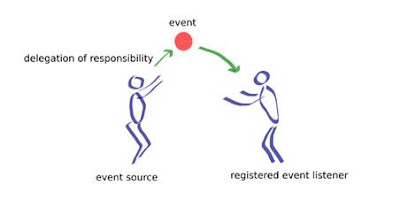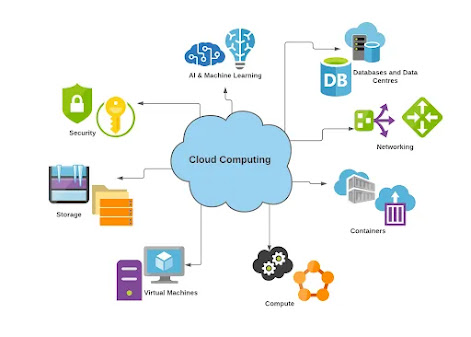Internet Term Glossary - H to L
Hit
As
used in reference to the World Wide Web, ?hit? means a single request from a
web browser for a single item from a web server; thus in order for a web
browser to display a page that contains 3 graphics, 4 ?hits? would occur at the
server: 1 for the HTML page, and one for each of the 3 graphics.
Home
Page - (or Homepage)
Several
meanings. Originally, the web page that your browser is set to use when it
starts up. The more common meaning refers to the main web page for a business,
organization, person or simply the main page out of a collection of web pages,
e.g. "Check out so-and-so's new Home Page."
Host
Any
computer on a network that is a repository for services available to other
computers on the network. It is quite common to have one host machine provide
several services, such as SMTP (email) and HTTP (web).
HTML - (HyperText Markup Language)
The
coding language used to create Hypertext documents for use on the World Wide
Web. HTML looks a lot like old-fashioned typesetting code, where you surround a
block of text with codes that indicate how it should appear.
The
"hyper" in Hypertext comes from the fact that in HTML you can specify
that a block of text, or an image, is linked to another file on the Internet.
HTML files are meant to be viewed using a "Web Browser".
HTML
is loosely based on a more comprehensive system for markup called SGML.
HTTP - (HyperText Transfer Protocol)
The
protocol for moving hypertextfiles across the Internet. Requires a HTTP client
program on one end, and an HTTP server program on the other end. HTTP is the
most important protocol used in the World Wide Web (WWW).
Hypertext
Generally,
any text that contains links to other documents - words or phrases in the
document that can be chosen by a reader and which cause another document to be
retrieved and displayed.
IMAP - (Internet Message Access Protocol)
IMAP
is gradually replacing POP as the main protocol used by email clients in
communicating with email servers.
Using
IMAP an email client program can not only retrieve email but can also
manipulate message stored on the server, without having to actually retrieve
the messages. So messages can be deleted, have their status changed, multiple
mail boxes can be managed, etc.
IMAP
is defined in RFC 2060
Intranet
A
private network inside a company or organization that uses the same kinds of
software that you would find on the public Internet, but that is only for
internal use. Compare with extranet.
IP
Number (Internet Protocol Number)
Sometimes
called a dotted quad. A unique number consisting of 4 parts separated by dots,
e.g.
165.000.000.1
Every
machine that is on the Internet has a unique IP number - if a machine does not
have an IP number, it is not really on the Internet. Many machines (especially
servers) also have one or more Domain Names that are easier for people to
remember.
ISP - (Internet Service Provider)
An
institution that provides access to the Internet in some form, usually for
money.
Java
Java
is a network-friendly programming language invented by Sun Microsystems.
Java
is often used to build large, complex systems that involve several different
computers interacting across networks, for example transaction processing
systems.
Java
is also becoming popular for creating programs that run in small electronic
devices, such as mobile telephones.
A
very common use of Java is to create programs that can be safely downloaded to
your computer through the Internet and immediately run without fear of viruses
or other harm to your computer or files. Using small Java programs (called
"Applets"), Web pages can include functions such as
animations,calculators, and other fancy tricks.
JavaScript
JavaScript
is a programming language that is mostly used in web pages, usually to add
features that make the web page more interactive. When JavaScript is included
in an HTML file it relies upon the browser to interpret the JavaScript. When
JavaScript is combined with Cascading Style Sheets(CSS), and later versions of
HTML (4.0 and later) the result is often called DHTML.
JPEG - (Joint Photographic Experts Group)
JPEG
is most commonly mentioned as a format for image files. JPEG format is
preferred to the GIF format for photographic images as opposed to line art or
simple logo art.
Kilobyte
A
thousand bytes. Actually, usually 1024 (210) bytes.
LAN - (Local Area Network)
A
computer network limited to the immediate area, usually the same building or
floor of a building.
Linux
A
widely used Open Source Unix-like operating system. Linux was first released by
its inventor Linus Torvalds in 1991. There are versions of Linux for almost
every available type of computer hardware from desktop machines to IBM mainframes.
The inner workings of Linux are open and available for anyone to examine and
change as long as they make their changes available to the public. This has
resulted in thousands of people working on various aspects of Linux and
adaptation of Linux for a huge variety of purposes, from servers to
TV-recording boxes.
Login
Noun
or a verb.
Noun:
The account name used to gain access to a computer system. Not a secret
(contrast with Password).
Verb:
the act of connecting to a computer system by giving your credentials (usually
your "username" and "password")



Comments
Post a Comment